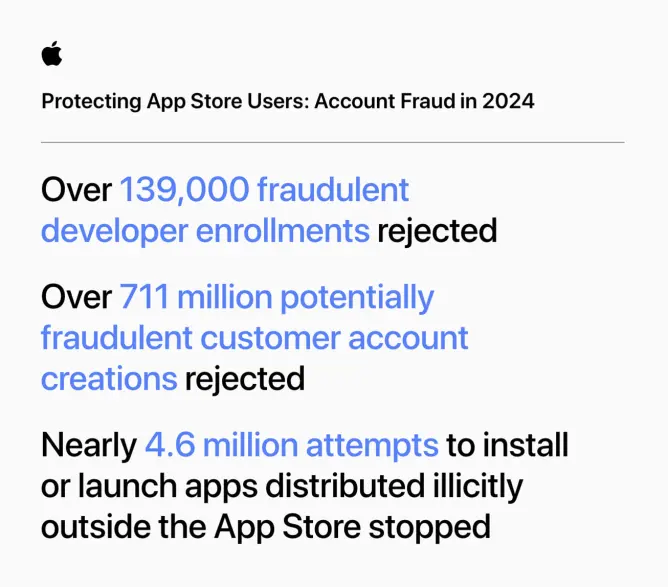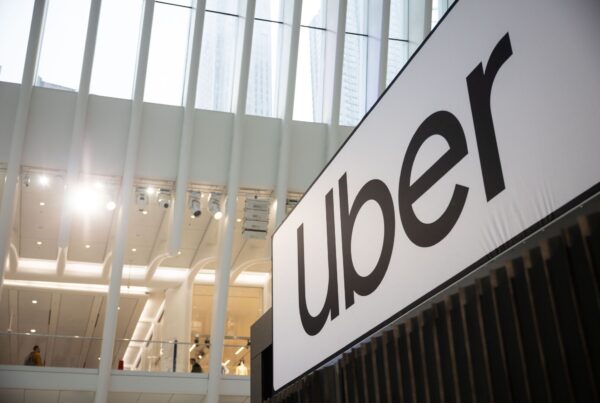
Just ahead of its big Worldwide Developers Conference (WWDC 2025), Apple dropped some eye-popping numbers about how it’s keeping the App Store safe—not just for developers, but for you, the everyday user swiping through apps on your iPhone.
Let’s break it down.
🛡️ $2 Billion in Fraud Stopped—Just Last Year
In 2024 alone, Apple says it blocked over $2 billion worth of fraudulent transactions on the App Store. And if you zoom out? That number climbs to $9 billion over the past five years. That’s money saved by stopping scams, shady apps, and sketchy payments before they ever reached your phone or credit card.
🚫 Nearly 2 Million Risky Apps Got Blocked Too
Apple isn’t just watching where your money’s going—it’s guarding what’s trying to get onto your phone in the first place. In 2024, they rejected nearly 2 million apps that didn’t meet safety or quality standards. These could’ve been filled with malware, scams, or just poor user experiences. Either way, they didn’t make the cut.
🔐 Apple’s Pitch: Security Is the Point
Apple’s timing here isn’t random. This announcement comes hot on the heels of a big legal shake-up with Epic Games (the guys behind Fortnite). As a result, Apple now has to let U.S. developers link to outside payment systems in their apps—bypassing Apple’s 15%–30% commission.
So why stay with Apple’s system?
Because security is expensive and complex. Fraud, chargebacks, data breaches—those risks don’t disappear when developers leave the App Store’s safe zone. Apple’s argument is that the fees it charges help cover a lot more than just processing payments. It’s also about keeping users and developers safe.
And the numbers back that up.
👮♂️ A Global Fraud Crackdown
Here’s just a taste of Apple’s anti-fraud work in 2024:
- 146,000 developer accounts were shut down due to fraud.
- 139,000 developer applications were rejected before they could even start.
- 711 million fake user accounts got blocked.
- 129 million customer accounts were deactivated due to suspicious activity.
- Over 10,000 apps on pirate storefronts were taken down—including malware, adult content, and illegal clones of real apps.
- 4.6 million attempts to install unapproved apps were stopped cold.
These aren’t just statistics—they’re reminders that not every app store plays by the same rules.
🇪🇺 What About the EU and Alternative App Stores?
In Europe, new laws under the Digital Markets Act (DMA) are changing the game. Apple now has to allow alternative app stores and sideloading (installing apps outside the App Store). That means more freedom for users—but also more risk.
And Apple’s not subtle in its warning: the same “freedom” can make it easier for pirates and scammers to target users and developers alike.
👩💻 What This Means for Smaller Developers
While big players like Spotify and Fortnite are jumping on the chance to manage their own payments, Apple’s betting that smaller app makers will stick with the App Store. Why?
Because managing payments is hard, risky, and resource-intensive. Apple points out that for many small developers—especially those in its Small Business Program (which cuts the commission to 15%)—the App Store is actually a better deal, both financially and for peace of mind.
Third-party data from companies like RevenueCat backs this up: many smaller developers don’t gain much by switching to their own payment systems once you factor in the extra work and security headaches.
So, Should You Care?
Absolutely. Whether you’re a developer, a parent downloading games for your kid, or just someone who doesn’t want to get scammed, Apple’s numbers are a reminder of one thing:
The App Store isn’t just a marketplace—it’s a fortress.
And while the mobile app world is opening up with new options and more freedom, there’s still something comforting about having a gatekeeper that blocks \$2 billion worth of bad stuff from hitting your screen.

Apple Just Blocked $2 Billion in App Store Fraud Last Year—Here’s Why That Matters to You




